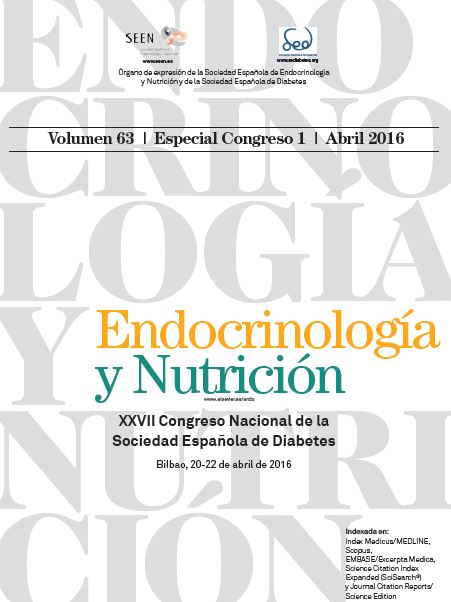P-095. - EFFECTS OF MIGRATORY MOVEMENTS ON NUTRITIONAL HABITS, FROM ROMANIA TO CATALONIA
aInstitut d’Investigacions Biomèdiques August Pi i Sunyer (IDIBAPS), Barcelona. bInstitut d’Investigacions Biomèdiques August Pi i Sunyer (IDIBAPS), Barcelona, Centro de Investigación en Alimentación y Desarrollo (CIAD), Sonora, México. cCIBER de Diabetes y Enfermedades Metabólicas Asociadas (CIBERDEM) y Hospital Clínic de Barcelona, Barcelona. dInstitut d’Investigacions Biomèdiques August Pi i Sunyer (IDIBAPS),CIBER de Diabetes y Enfermedades Metabólicas Asociadas (CIBERDEM), Hospital Clínic de Barcelona y Universitat de Barcelona, Barcelona.
Introduction: Nutritional habits in Romania feature the high use of animal fats and unconventional oils in the Mediterranean diet. They also include a high consumption of dairy and pork products. Initially, in a first part of the study, we observed that Romanians living in Catalonia have different indigenous nutritional patterns but could only make qualitative observations.
Objectives: To verify if the differences in dietary patterns could translate into differences in nutrients consumed by Romanian immigrants (RM) and Catalan (CL) groups.
Material and methods: For the first part of study 808 people were recruited. After, 34 subjects from Romania living in Catalonia were recruited and compared with a similar group by age (38.55 ± 2.75), sex (70.58% women) and BMI 25.74 ± 2.98) of 21 native Catalans living in the same area. We checked: medical history, anthropometry, biochemical analysis, physical activity questionnaire (IPAQ) and 3-day dietary records.
Results: In the first part of study (n = 808), the anthropometry were observed and shows that the obesity is more frequent in CL (30%) than in RM (15%). It was the same with the metabolic syndrome is more frequent in CL (40%) than in RM (30%). Also, the dietary patterns were recorded by food frequency questionnaires and some differences in dietary patterns between the two groups was observed: number of meal at day and vegetable, rice and pasta, refreshments, sea food and dairy consumption among others... In the second part (n = 55), it was checked that the both groups were similar and it didn’t exist any differences in anthropometricmeasures. In biochemistry it was observed differences only in creatinine, proteins in serum, AST and calcium wich is corroborated with the results obtained by 3-day dietary records. The RM group showed a lower intake of total protein (p-value = 0.022) and non-essential amino acids such as lysine (p-value = 0.047), arginine (p-value = 0.041), tyrosine (p-value = 0.035) and a lower intake of vitamins of B group. Also, RM group presented a lower consumption of glucose (p-value = 0.004), fructose (p-value = 0.007), galactose (p-value = 0.024) and simple sugars total (p-value = 0.032). Finally, a trend was observed of higher consumption of total fat, unsaturated fat specifically by CL. In the results of the IPAQ questionnaire it showed that the CL perform more vigorous physical activity (p-value < 0.001) but spend more time sitting (p-value = 0.008) than RM.
Conclusions: It appears that RM organize different the way that they practice physical activity and have adapted their eating habits to simulate Catalan dietary habits but there are still differences between populations mainly for increased consumption of protein foods such as sea food and dairy and unsaturated fats by CL.
Funding: European Commission-MEDIGENE





